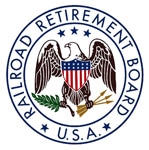Certain Union Pacific (UP) workers who were employed by the carrier from 1991 to 2017 might get some money back in their pockets thanks to a ruling made in the United States Court of Appeals for the Eighth Circuit.
If they meet certain criteria and were taxed on particular stock options or ratification bonuses, current and former UP workers will receive a refund after the appeals court sided with UP in the summer of 2017 and reversed a district court’s ruling in a fight over taxes with the Internal Revenue Service (IRS).
At the heart of the matter was whether stock options or ratification bonuses received by UP workers should have been treated as taxable income under the Railroad Retirement Tax Act. The IRS argued successfully in district court that this was the case and received a summary judgment of about $75 million in taxes owed by the carrier. However, UP appealed the decision, and the appeals court reversed the district court’s ruling.
In June 2018, the U.S. Supreme Court denied a petition by the IRS to hear the case, settling the matter in favor of UP and paving the way for the potential payouts.
In order to determine their eligibility for a refund, people who were employed by UP from 1991 to 2017 must file a consent form by visiting www.unionpacifictaxrefund.com. The consent form must be turned in by a March 12, 2019, deadline in order to receive a refund, which is scheduled to be disbursed between June and August 2019.
For additional information, see the FAQ about the refund program by following this link.
For additional questions, contact Union Pacific’s tax refund administrator by emailing info@UnionPacificTaxRefund.com or call 888-724-0236 (toll-free).
Retirees who claim refunds on stock options have been advised their annuities could be reduced.
Follow this link to read the appeals court ruling (PDF).
Tag: worker refund

As a result, certain railroad employers and employees who previously paid railroad retirement taxes based on the exercise of such stock options may be eligible for tax refunds through the Internal Revenue Service (IRS).
Railroad employees and railroad retirement annuitants considering filing for such a tax refund should know that doing so may reduce the amount of their total creditable railroad compensation. Under the Railroad Retirement Act (RRA), creditable compensation is a factor in the computation of a railroad retirement annuity. A reduction in compensation could cause a reduction in an annuitant’s monthly benefit rate, and may result in an overpayment. For active employees, a change in creditable compensation may impact any estimated annuity amounts they were previously given by the Railroad Retirement Board (RRB).
At this time, the RRB is able to provide guidance to only a select group of individuals trying to determine if their total creditable railroad compensation will be reduced and/or if their annuity amounts will change as a result of claiming refunds of taxes paid on non-qualified stock options. That group is comprised of those individuals who have been identified by their railroad employers as employees whose regular earnings met the maximum compensation taxable caps without the inclusion of the stock option payment. In those cases, if the employees file claims for refunds of taxes paid on the stock option payment, payment of the refund will not impact their annuity rate computations. Employees who believe they are members of this group should review their consent letters to confirm whether they have been reported by their employers to be a “Medicare Tax Only” employee. If you are uncertain whether you are a “Medicare Tax Only” employee, please contact your railroad employer. Employees may also call the RRB’s toll-free number at 877-772-5772 if there are any other questions.
The RRB is currently unable to provide guidance to individuals not in the above group. The agency’s three-member board (appointed by the President with the advice and consent of the Senate, and representing rail labor, rail management and the public interest) has the authority to determine what effect, if any, the court’s decision will have on the RRB’s administration of the RRA. However, the position of chairman of the board is currently vacant, and the management member of the board must recuse himself from this issue as he previously worked for a railroad and received non-qualified stock options. The labor member of the board alone lacks statutory authority to make a decision, as a two-member quorum is required by law.
It is expected that in the first quarter of 2019, the agency will get a three-member board in place that will be able to make policy decisions related to this matter. The RRB is currently in discussions with the IRS to determine if it is possible to hold open the period for railroad employees and retirees to file claims for tax refunds until such time as the RRB gets a three-member board in place. The RRB would then be better able to provide information regarding the effect on RRB benefits to those needing assistance.
Read more about how to apply for the refunds and court decision.